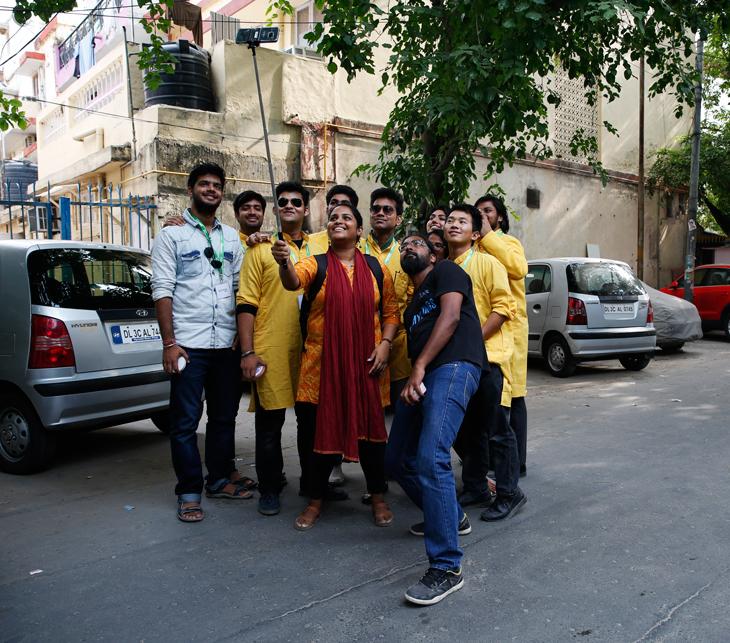Hop on the bandwagon: #GoSolar bus tours Delhi to make solar power cool
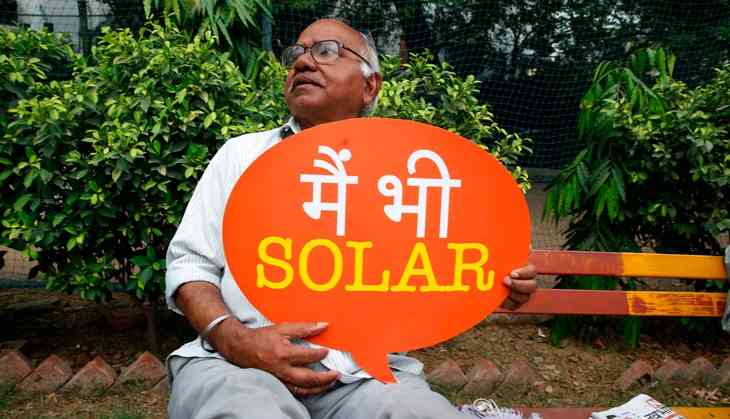
In a first-of-its-kind initiative, Greenpeace India has launched a “solar bus” in the city with the specific intention of educating people about pros and cons of going solar.
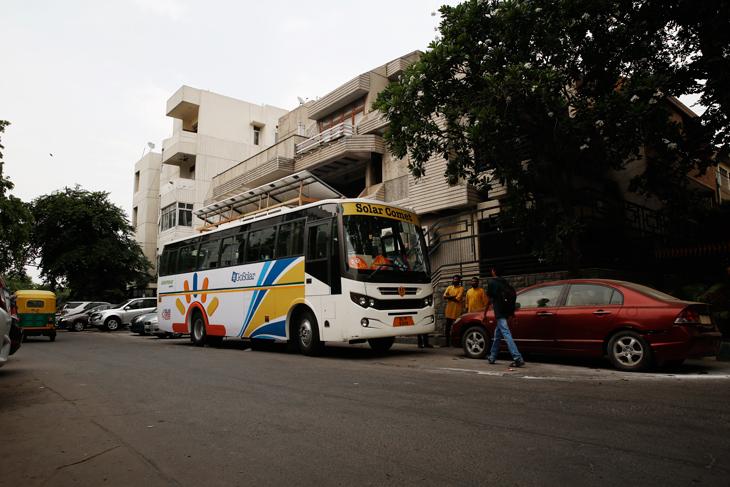
#GOSOLAR
The #GoSolar campaign was flagged off by Greenpeace on World Environment Day and it will continue until the end of the month, covering various localities, including residential colonies, urban villages and commercial complexes.
“We chose Delhi because of the ground work that we had already done here. We had played a role in framing the state's solar policy, which was released last year. In 2013, we had released a report on the rooftop potential in Delhi and talked about the robust scope of rooftop solar in the city,” said Pujarini Sen, Climate and Energy campaigner for Greenpeace India.
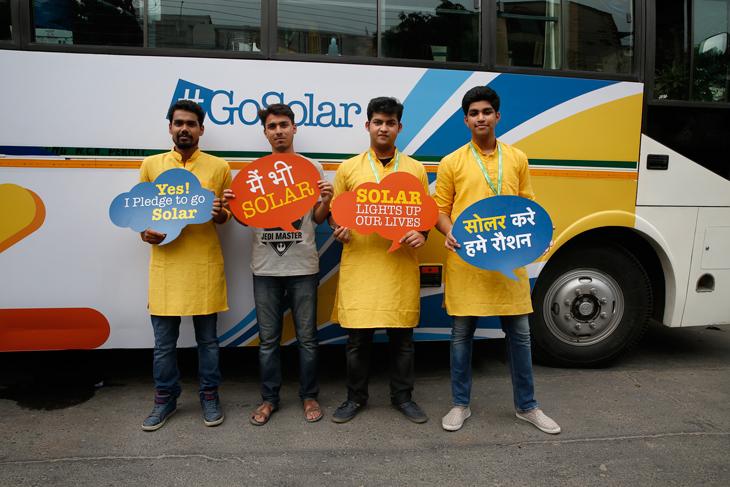
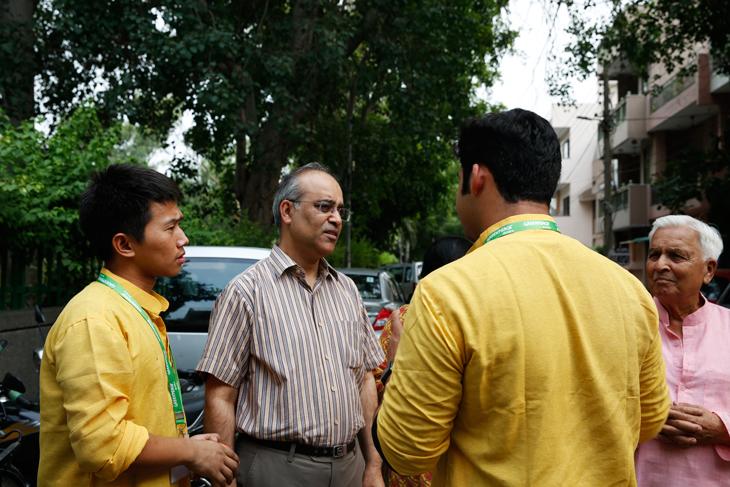
WHAT IS A “SOLAR BUS”?
The bus is furnished as a house on wheels with various home appliances, including a TV, fridge, an air conditioner, a water cooler, a washing machine, juicer mixer grinder, and LED bulbs. All these appliances are run by 2kW solar panels fitted on the roof of the bus.
While the bus is for purely demonstrative purposes, the underlying concept is to make people realise how rooftop solar panels can run an entire household successfully.
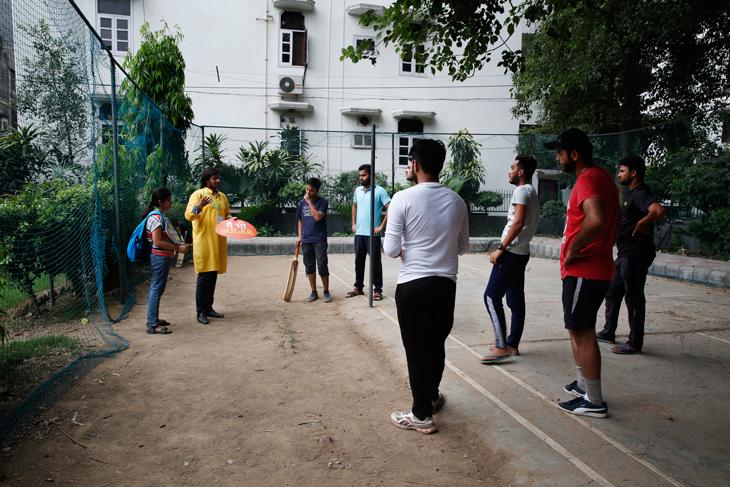
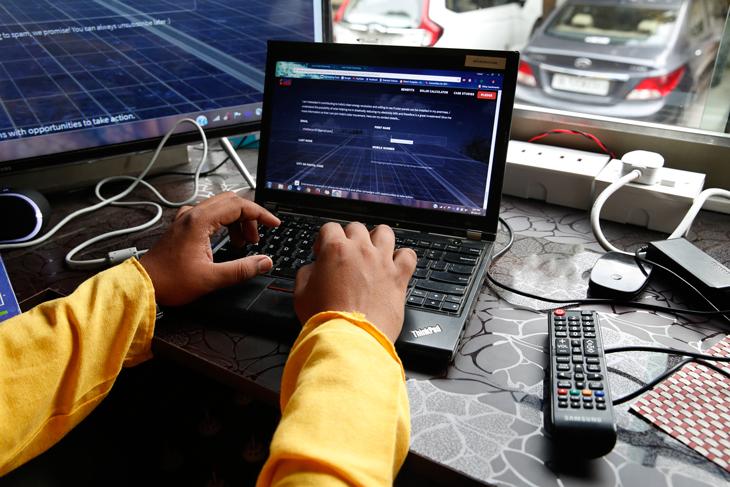
DOING THE MATHS
On an average, a household requires 3-5 kW of solar energy to function successfully. And since the Delhi government has introduced a 30% subsidy on solar power for residential and commercial purposes, the buying rate of solar panels has gone down considerably. Hence, 1 kW of solar energy can cost you anywhere between Rs 30,000-50,000.
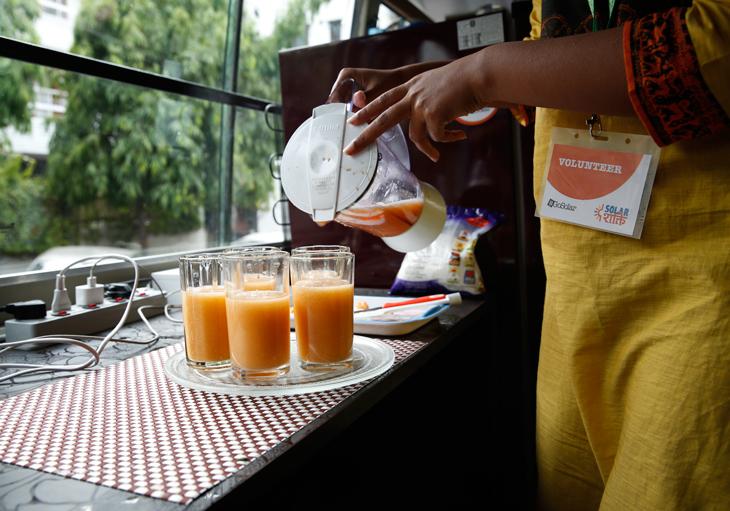
WILL DELHIITES WARM UP TO SOLAR POWER?
While Delhi’s solar potential is 2,500 MW with a residential potential of 1,250 MW, the official target is to reach 1,000 MW worth solar installations by 2020 and 2,000 MW by 2025.
As of December 2016, only 35.9 MW have been installed, out of which only 3 MW were residential installations in March 2016.
“However, we feel that India is ready for solar power, now more than ever,” said Sen. “The challenge we face is to change mindsets of people, who for several decades have gotten used to coal powered electricity,” she added.
Talking about middle-class resistance to solar power, she said, “They [too] surely look forward to a clean and a healthy world for the future generations, and when they come to know that it comes with several financial benefits, they tend to open up to the idea. And that's how we can convince them.”
